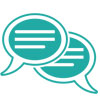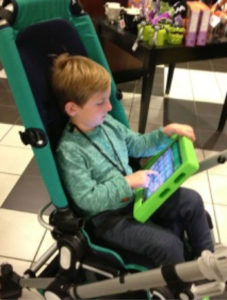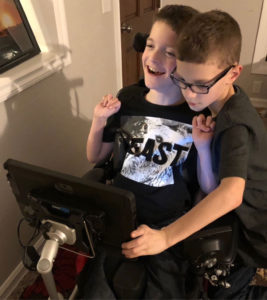
Communication
Being able to communicate is an essential human right but can be challenging for some. Difficulty with communication is often the most pressing issue for people or families and can feel overwhelming. Communication supports range from fairly simple to complex and can frequently take time to develop and learn. Communication Supports are also called Augmentative & Alternative Communication (AAC). There are a variety of supports that can help with participation in community and expressing thoughts.
 Communication supports can be helpful if:
Communication supports can be helpful if:
- Speech is difficult to understand or fatiguing
- Speech is not used at all or very little
- Speech is challenging to understand
- Remembering and being able to use words is challenging
- Speech and language is difficult to use in any situation
- It is frequently difficult to get your meaning understood
 Examples of Communication Supports:
Examples of Communication Supports:
- A dedicated computer programmed with voice output – Speech Generating Device (SGD)
- Software on a computer, phone, or tablet with voice output
- Single message ‘buttons’ programmed with voice output
- Visual symbols on a board or in a book
- Partner-training to support communication
- Auditory lists of words, phrases, or letters to be chosen when provided by a partner (“partner-assisted scanning”)
- Gestures or sign language
- Drawing, pointing, or “miming/acting out” to get meaning across
AAC Evaluations are conducted by Speech Language Pathologists (SLPs) who are trained in AAC. You can inquire about AAC services at:
- Hospitals or SLP clinics
- Local School Districts
- Vocational Rehabilitation
The AT Lab offers Consultations and Trainings around communication supports.


